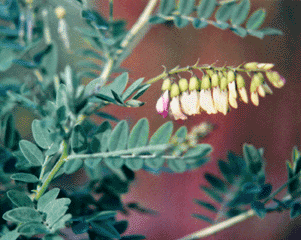Naturopathic health
Astragalus Membranaceus Herbal Remedy
|
Astragalus root information Chinese herbal medicine practitioners most commonly use Astragalus (Astragalus membranaceus) as a general tonic and specifically for boosting the immune system. Astragalus can be used for:General immune boosting Treating colds and flu Angina Hepatitus Kidney & bladder infections Alzheimer's disease Chemotherapy support Antitumour There is plenty of research on Astragalus click her to find out more Side effects and contraindicationsAstragalus is considered safe for most adults. Its possible side effects are not well known because astragalus is generally used in combination with other herbs. It may interact with medications that suppress the immune system, such as the drugs taken by some cancer patients and similar drugs taken by organ transplant recipients. It is generally advised that pregnant women should always check with their herbal practitioner before taking herbal remedies. Active Compounds:Astragalus contains numerous components, including asparagine, calycosin, choline, betaine, flavonoids, polysaccharides, triterpene glycosides (e.g., astragalosides I-VII), amino acids, and trace minerals.What Chinese Medicine says about Astragalus Chinese Medicine defines Astragalus as a 'Qi Tonic' that tonifies the Wei Qi, the part of the Yang that circulates just below the skin surface It also tonifies Spleen Qi strengthening digestion improving metabolism, increasing appetite and treating diarrhea. In traditional Chinese medicine and Western clinical herbal medicine, astragalus is usually used in combination with other herbal remedies and is very seldom used as a single herbal treatment.
Adult Tincture Dosage:Based on a tincture with a herb to alcohol ratio of 1:3 take 2ml to 4ml three times a day Naturopaths treat the whole person not just the disease or condition. That's why you cannot use this site for diagnosis or treatment. The information we provide should not be treated as a substitute for medical advice or treatment. We recommend that you visit a qualified naturopath or find a GP who is sympathetic to a naturopathic approach. Click here for our full disclaimer.Further reading:L Tierra, 2003, Healing with the Herbs of Life, Crossing Press |
Research homeHerbal remediesAdvice on buying herbal remedies
|
|
|
|
|
If you're starting to move towards a healthy diet and you want to take a major step forward then a detoxification programme can make a big difference. Click on the link below to find out more. Healthy Recipes Juicing SupplementsBach Flower Herbal Acupuncture Homeopathy DetoxificationMassage Qi Gong Nutrition & Diet Iridology Tissue Salts |
|
|

[Herbal Remedies][Ailments][Naturopathy][Contact][Community][Lifestyle][Home][Research]








